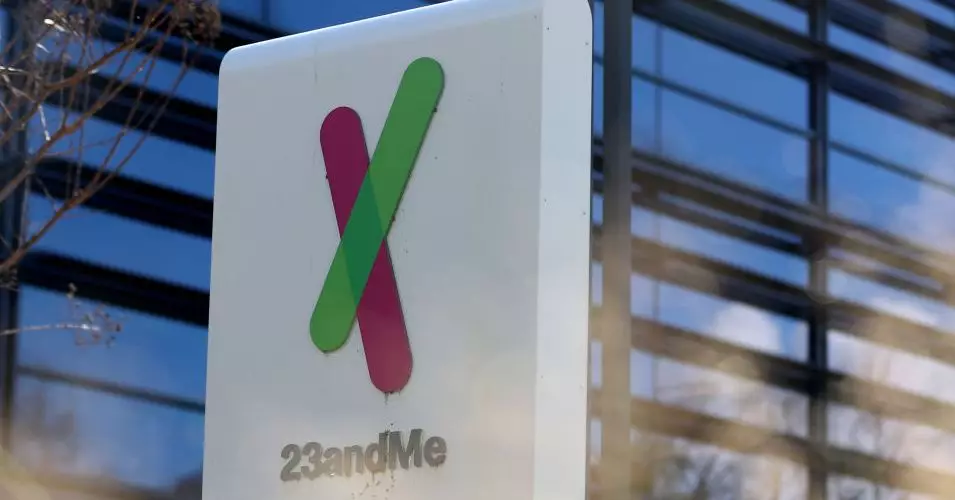In a dramatic shift from its once-rosy trajectory, genetic testing trailblazer 23andMe has filed for Chapter 11 bankruptcy, culminating in the resignation of its co-founder and CEO, Anne Wojcicki. Once hailed as a groundbreaking company, valued at a staggering $6 billion, the firm seems to have succumbed to a combination of mismanagement, market fluctuations, and escalating privacy concerns surrounding the use of genetic information. The implications of this change resonate beyond the corporate boardroom, thrusting the private genetic data of its customer base into uncertainty.
The staggering fall from grace raises pivotal questions—not just about the company’s viability but about the integrity and security of the genetic data that millions of customers have chosen to share. As 23andMe looks to sell its assets during this tumultuous downturn, consumers are left grappling with the potential fate of their most personal information.
The Dual Threat to Genetic Data
Privacy advocates have long emphasized two pressing threats associated with genetic data: inadequate protection measures by the company and the potential transfer of sensitive information to entities that consumers did not select, effectively bypassing their consent. This situation underlines a critical vulnerability that could exacerbate fears surrounding genetic testing services. People are processing a dual loss—the collapse of a company they trusted and the fear that their genetic data could be mishandled or exploited by an untrusted successor.
Recent remarks from California’s Attorney General, Rob Bonta, should serve as a clarion call for consumers to take action regarding their privacy rights. Notably, residents in California possess the legal right to demand the deletion of their data, an option that is not universally available to those in other states. Meanwhile, while Washington state has enacted measures to safeguard health-related data under its My Health My Data Act, the absence of a comprehensive national health privacy law leaves the majority of consumers unprotected. This fragmented legal landscape reinforces the urgency for users to safeguard their data proactively.
The Inadequate Safety Nets
Despite the existence of some legal protections, many customers of 23andMe are left exposed and vulnerable. Andrea Downing, a cofounder of the nonprofit organization The Light Collective, emphasizes the absurdity of relying on patchwork laws for health privacy. “There is still no national health privacy law in the US protecting your rights unless you live in California or Washington,” she observes. This highlights the inherent flaw in trusting corporations with sensitive genetic data when regulatory frameworks lag severely behind technological progress.
Moreover, current customers of 23andMe face a daunting reality: even if the new ownership decides to enforce stricter privacy policies moving forward, the data already collected remains bound by previous terms. John Verdi from the Future of Privacy Forum explains that while 23andMe has legal obligations concerning its existing customer data, the potential shift in ownership opens doors for policy changes that might not bode well for consumers. This creates an unsettling situation where longstanding data collected could be at risk, rendering previous assurances meaningless.
Pragmatic Steps for Concerned Consumers
Given the escalating concerns regarding data security flow, it’s crucial for consumers to take control of their information. Anyone who wishes to safeguard their genetic data should consider downloading their genetic information promptly and pursuing the deletion of their account with the service. The steps may seem straightforward, but in reality, they represent a desperate maneuver to reclaim autonomy over personal information that has become a pawn in a corporate chess game.
The deletion process, while outlined on the 23andMe platform, entails navigating through several layers of settings—an indication that there may be barriers even in seeking to secure one’s own data. Users should log into their profiles, access specific settings to view their data, and initiate its deletion while also opting for the destruction of their biological samples. These steps are crucial for reclaiming some semblance of control in a landscape that has become increasingly treacherous.
Trust Betrayed
In light of recommended actions, the overarching sentiment among privacy advocates like Kenn White, who dismisses the value of existing privacy policies, feels palpable. When such widespread uncertainty looms over a company’s future—and the fate of the voluminous data it possesses—it becomes clear that consumers can feel forsaken. The suggestion to delete genetic data is a clarion call, a necessary directive for those who entrusted their most intimate information to a service, only to face a potential betrayal. The tightening grip of corporate interests over personal genetic information ultimately resounds with urgency and necessity, prompting a reconsideration of who really holds the power in an era that increasingly blurs the lines between innovation and exploitation.

